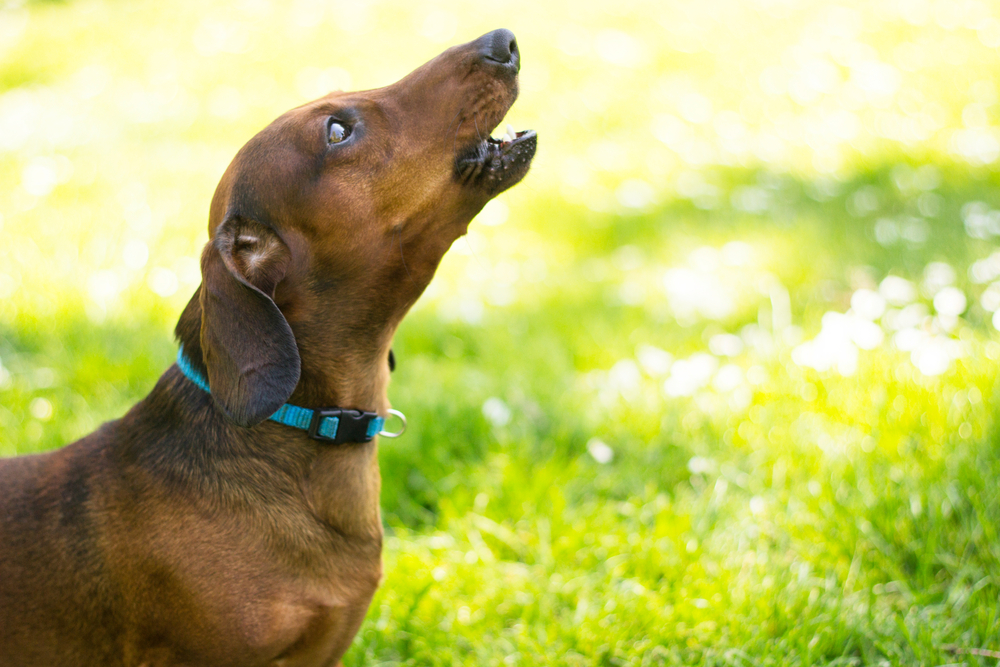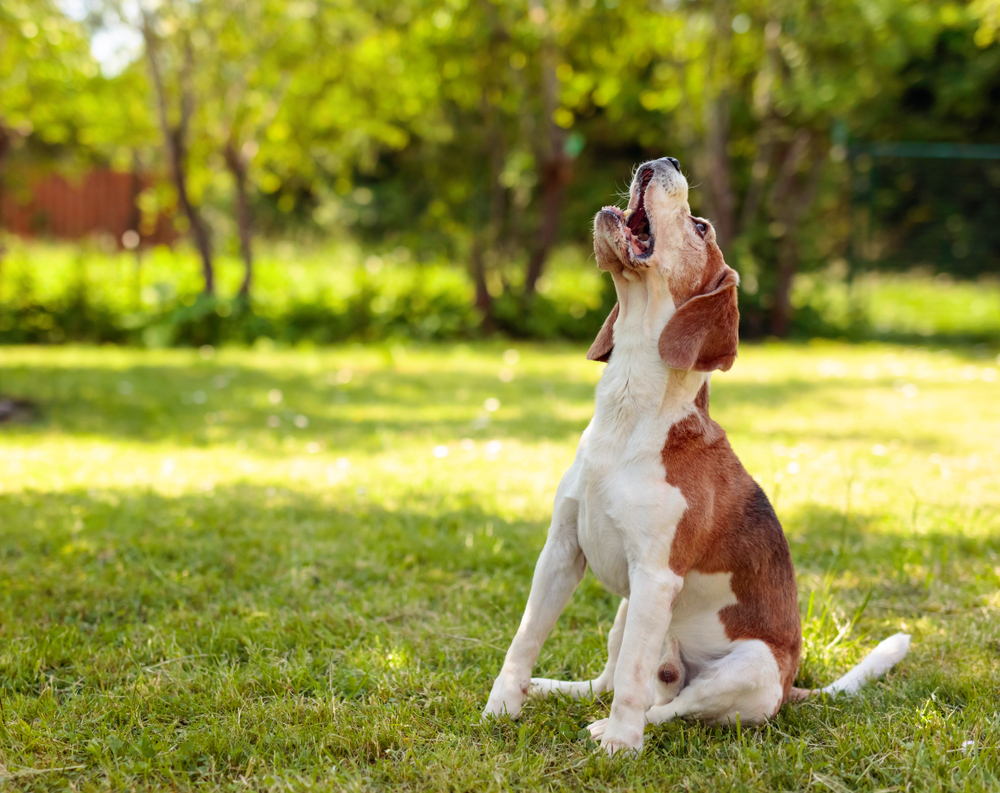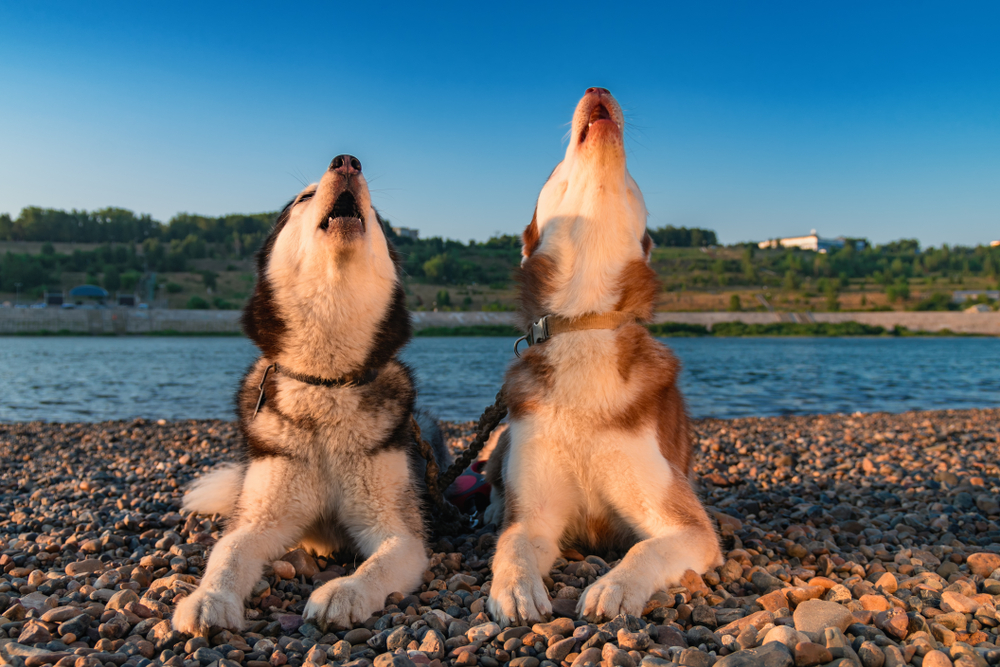Original Article: https://www.dogster.com/lifestyle/why-do-dogs-howl-when-you-howl
Dogs make a lot of interesting vocalizations, but none are quite as loud or jarring as the howl. Most dog owners know that their pets howl for a number of reasons, including communicating and sending a warning, but have you ever wondered why yours howls back at you when you make the sound at them?
Read on to find five common reasons why dogs howl when you howl and to learn more about this vocalization in general.


The 5 Reasons Why Dogs Howl When You Howl
1. They’re Communicating With You
When your dog responds to your howls with their own howls, this is often due to their social and pack-oriented nature. Dogs, like their wolf ancestors, use howling as a form of communication with their pack members (you). When you “speak” to your pets in a way they can understand, you’re sharing an experience that will ultimately strengthen your connection.

2. They’re Mimicking You
Dogs are highly social creatures that have evolved over the centuries to communicate with one another through their various vocalizations, pheromones, body postures, and more. When your pup howls in response to your howling, they may simply be mimicking you as a way to bond with you or just because they think the sounds you’re making sound cool.
It’s been known for a long time that wild animals use mimicry to survive, but it wasn’t until recently that scientists found that dogs are also capable of imitating their owners.
3. They Want Your Attention
Your dog really loves you and enjoys being in your company. They especially love it when you pay attention to them. Since dogs are intelligent, it doesn’t take them long to realize that when they howl in response to your howls, you give them the attention they desire.

4. They’re Anxious or Uncomfortable
While a dog howling in response to your howls can be a form of communication, mimicry, or a way to get praise and attention, it can also mean they’re anxious or uncomfortable.
Though you may be howling for fun or even trying to “talk” with your dog, there’s a chance the noises are making your sensitive or anxious dog stressed out or uncomfortable. They may respond with their own howls as a way of trying to communicate their feelings with you.
The good news is that your pup will likely exhibit other signs of anxiety, stress, or discomfort aside from responding to your howls with their own.
- Panting
- Pacing
- Trembling
- Drooling
- Withdrawal
- Hiding
- Low or tucked tail
- Ears pinned back
- Dilated eyes
5. They’re Responding to the Sound
Dogs will sometimes howl in response to loud or high-pitched sounds, especially if they are noises your pup doesn’t hear on a regular basis. This is why it’s so common for dogs to vocalize when they hear ambulance sirens or a car in your neighborhood backfiring.


Why Do Dogs Howl?
Howling has ancestral roots for dogs. Wild wolves would howl for many different reasons, including to communicate their location with their pack members and to warn other animals to keep away from their territory. While your dog likely doesn’t have pack members to communicate with (other than you, of course), nor do they need to ward off predators from their territory, the inclination to howl is still coded into their DNA.



Final Thoughts
Howling is an entirely natural form of communication for dogs. Chances are, when your pup howls in response to your howls, they’re just trying to explore this new way to talk to you. However, it’s essential to take note of what other body language your pup is exhibiting to determine if your vocalizations are making them nervous or stressing them out.
Featured Image Credit: Africa Studio, Shutterstock
Source: Dogster












